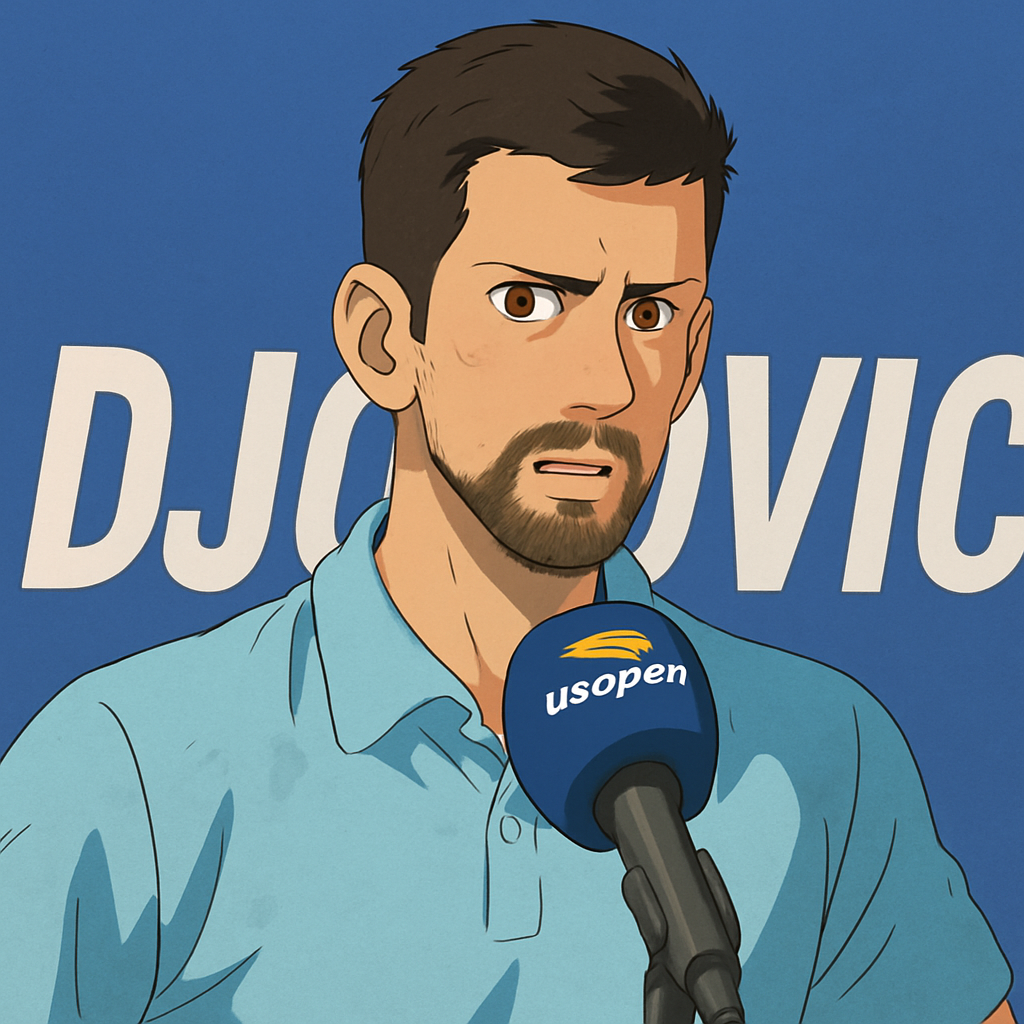NEW YORK — Novak Djokovic, the 24-time Grand Slam champion, has advanced to the third round of the US Open, but his journey has been anything but smooth. After a hard-fought, four-set victory over his compatriot Laslo Djere, a visibly frustrated Djokovic admitted to significant struggles, pinpointing the late-night scheduling as the "biggest problem" he is facing at Flushing Meadows.
The match, which began at 11:07 p.m. local time on Friday night, did not conclude until the early hours of Saturday morning, finishing at 1:30 a.m. after Djokovic battled back from a set down to win 4-6, 4-6, 6-1, 6-1, 6-3. The grueling contest pushed the 36-year-old's physical and mental reserves to their limit, a challenge he was quick to highlight in his post-match press conference.
The Grind of the Graveyard Shift
For a tournament that prides itself on its electric, round-the-clock energy, the US Open's infamous late-night sessions are a point of contention for many players. Djokovic, however, articulated the issue with pointed clarity. He explained that the recovery process for an athlete of his age is severely compromised when matches end in the early hours of the morning, disrupting sleep patterns, nutrition, and overall preparation for the next round.
"I don't play as many night session matches as some other players, maybe, but I have had my fair share," Djokovic stated. "The biggest problem is the recovery. You finish your match at 1:30, 2:00 in the morning, then you have to do press, physio, you can't fall asleep until 5, 6, 7 a.m. Your whole cycle is ruined." This disruption creates a cascading effect that impacts performance for days, a luxury no player can afford in the brutal best-of-five-set format of a major.
An Angry Three-Word Remark Surfaces
The physical toll was evident not just in his words but in his on-court demeanor. During a changeover in the fourth set, cameras caught a weary and irritated Djokovic muttering a sharp, three-word remark to his coaching box: "I have nothing." This moment of raw frustration laid bare the struggle he was enduring, feeling physically depleted and searching for answers against a determined opponent.
Despite this admission of emptiness, Djokovic summoned his legendary resolve. He broke Djere's serve immediately after that changeover, seizing control of the match and never looking back. It was a testament to his champion's mentality, but it came at a cost. "I was not feeling great," he conceded after the match. "I was not playing great."
The Domino Effect on Performance
The challenges of a late finish extend far beyond mere tiredness. Djokovic outlined the impracticalities that follow such a schedule, creating a domino effect that hampers an athlete's ability to compete at their peak.
- Nutrition: "You can't really have a proper meal. You have to eat something, but your body is not ready to process food at 3 a.m."
- Sleep: "The quality of sleep is poor. You are overcharged with adrenaline and cortisol."
- Recovery: "The next day is basically a write-off. You are trying to sleep, but your body is in a different mode."
- Preparation: "You lose an entire day of preparation for your next opponent, which is a significant disadvantage."
This comprehensive breakdown highlights why the scheduling is more than an inconvenience; it's a competitive imbalance that players are forced to navigate.
A Tournament-Wide Scheduling Debate
Djokovic's complaints are not isolated. The debate over late-night matches at the US Open has raged for years. While the spectacle of primetime tennis is a ratings bonanza for broadcasters and a unique experience for fans, players increasingly argue that their health and the integrity of the competition are being compromised for entertainment value.
Other players have voiced similar concerns. Former champion Daniil Medvedev has previously spoken about the difficulty of playing past midnight, and Coco Gauff has also acknowledged the challenge, though often with more youthful resilience. The ATP and WTA Tours have rules limiting how late matches can start at regular events, but these do not apply to the Grand Slams, which are independently operated.
Looking Ahead: A Test of Resilience
For now, Djokovic must focus on recovery as he prepares to face his next opponent, compatriot Miomir Kecmanovic, in the third round. The question looming over his campaign is whether the physical and emotional energy expended in his marathon against Djere will have a lingering effect. His ability to overcome such adversity is what has defined his career, but at this stage, every hour of recovery is precious.
"Of course, winning a match is always a beautiful thing," Djokovic reflected. "But the way I felt on the court today, that's something I don't want to experience too often. I will try to recover. I have experience with these kind of circumstances. I hope that my body will respond well." His hope is that tournament organizers will listen to player feedback and consider implementing a curfew for starting matches, similar to the one used at Wimbledon, to protect the athletes' well-being and ensure a fairer competition for all.

